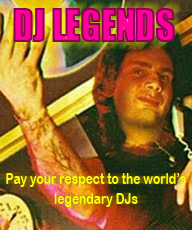Write Like Mozart: An Introduction to Classical Music Composition
Home :: Producer tips and DAW information :: Write Like Mozart: An Introduction to Classical Music CompositionReply
Write Like Mozart: An Introduction to Classical Music Composition Posted on: 19.12.2013 by Layne Koop This is a Coursera class on music composition. Coursera classes are free, VERY good, and easy to follow online. I have taken several on Electronic Music Production. If you want to take a step past "Music Theory for Dummies," this would be a great class. Take 5 minutes to watch the intro video and figure out if this is for you. The more you know - the more you know, you know. https://www.coursera.org/course/classicalcomp | |
| Ervin Calvery 20.12.2013 |
Originally Posted by soundinmotiondj
Looking at the syllabus, this isn't all Mickey-mouse stuff - there's some real tonal theory in there. |
| Layne Koop 19.12.2013 | This is a Coursera class on music composition. Coursera classes are free, VERY good, and easy to follow online. I have taken several on Electronic Music Production. If you want to take a step past "Music Theory for Dummies," this would be a great class. Take 5 minutes to watch the intro video and figure out if this is for you. The more you know - the more you know, you know. https://www.coursera.org/course/classicalcomp |
| Layne Koop 21.12.2013 | Based on informal observations, many people on this chat board are likely lacking even some of the recommended background information. Even so, this class would seem to be VERY useful for anyone who was looking to begin producing (or composing) their own music. My own informal training in music has been spotty at best. I like taking a variety of music classes from music appreciation, to "history of" classes, to more formal "music theory" classes. I try for three or four classes like this one each year. Over the last 5 years it has made quite a difference in how I hear music, and how I approach music as a DJ.
Recommended Background
A background in basic music theory is needed. This should include familiarity with the following: 1. key signatures; 2. meter, time signature; 3. reading treble and bass clefs; 4. rhythmic note value names and meanings (eighth, quarter, half, etc.) 5. reading of intervals (melodic and harmonic) up to a 10th. 6. Chord types: major, minor, diminished, 7th chords (Mm7, m7, diminished 7, etc.) 7. Basic roman numeral analysis: I-IV-V, etc. |
| Ervin Calvery 21.12.2013 | That's fair. |
| Lakeesha Storman 21.12.2013 | I meant advanced in terms of what I believe most producers on this site would have as far as music theory knowledge background. Perhaps I'm just incorrectly making an assumption that music theory for many aspiring producers is limited. |
| Ervin Calvery 20.12.2013 | I don't know that I would go so far as to say it's "advanced," but it looks promising for people who learned to read music but stopped about there. |
| Lakeesha Storman 20.12.2013 | There's definitely some really good, advanced stuff in there. If one already has the basics of theory down, this would likely be an awesome course to learn more. |
| Ervin Calvery 20.12.2013 |
Originally Posted by soundinmotiondj
Looking at the syllabus, this isn't all Mickey-mouse stuff - there's some real tonal theory in there. |
<< Back to Producer tips and DAW informationReply



